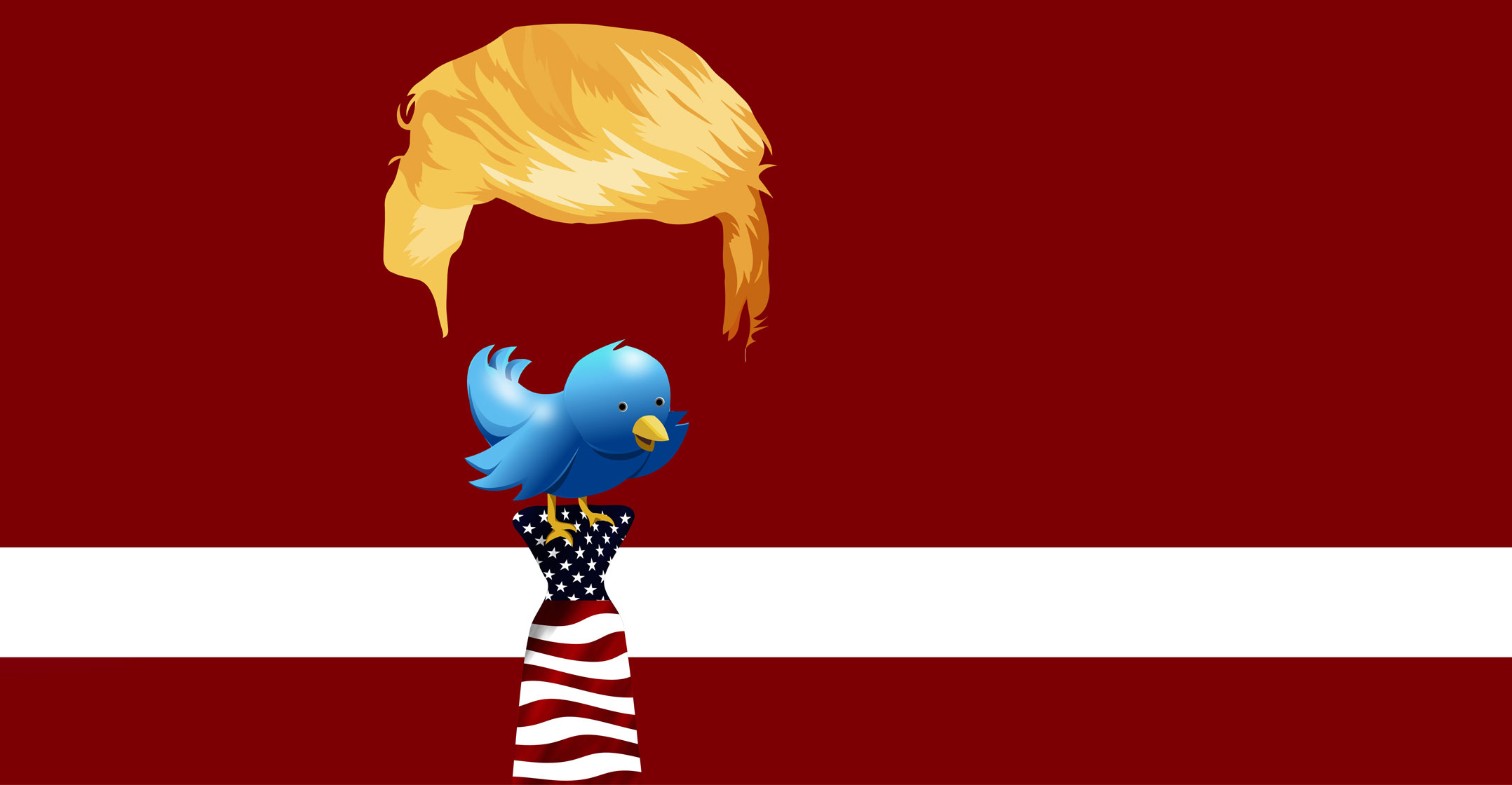 It’s tempting to ignore the early morning tweets of a technology-challenged US president. But in the wee hours on Tuesday, Donald Trump posted a vague threat to take action against Google for displaying Web search results of legitimate news stories he apparently didn’t like.
It’s tempting to ignore the early morning tweets of a technology-challenged US president. But in the wee hours on Tuesday, Donald Trump posted a vague threat to take action against Google for displaying Web search results of legitimate news stories he apparently didn’t like.
Trump is wrong on the facts, but his complaints underscore the business threats to tech companies from growing and largely disingenuous complaints that Google and other US Internet companies are stifling conservative viewpoints.
It’s generally not true that right-leaning voices get an unfair shake on popular Internet hangouts. Fox News consistently has among the most widely circulated posts on Facebook. “Tribal posts” — articles and videos that appeal to extremes on the left or right — were among the most shared items on Facebook last year. Google and Facebook computer systems can and do expand the reach of misinformation or outright hoaxes, but there is little evidence that this hurts right-leaning viewpoints.
There is harm, however, from conservative claims that Internet companies are trying to suppress their points of view. Fears of being accused of bias have made Facebook, Google parent company Alphabet and Twitter overly cautious about cracking down on people such as Alex Jones who abuse the Internet hangouts to spread hoaxes and sow hatred. And the Internet companies have to spend time and resources responding to bogus claims of bias and trying to ward off vague threats of legal or legislative action. Twitter CEO Jack Dorsey has recently been on a goodwill tour of Fox News and other outlets to counteract a bogus claim — echoed by the president — that the Internet company is making it tough to find the accounts of prominent right-leaning people on Twitter.
To be clear, Google and Facebook are in part to blame for the criticism that they improperly suppress some kinds of news or information. The computer models that prioritise which Web links people see on Google or determine the order of Facebook’s posts are by design a black box. The companies have been slow or clueless about explaining their actions, and some prominent Google and Facebook executives have openly supported Democratic political candidates. That makes it more likely that people will contend those companies’ Internet hangouts skew information for ideological reasons, to advance their corporate financial interests or for some other unfair reason.
The recent origins of the conservative bias claims can be traced back to controversy about a feature that Facebook introduced to highlight news events. In 2016, the news outlet Gizmodo published an explosive article about Facebook managers pressuring contractors to exclude popular conservative topics from the company’s “trending” section. The trending links were never widely used by people on Facebook, but the report sparked the most serious criticisms up to that point that Facebook was systematically silencing conservatives.
More cautious
Facebook made a concerted effort after that backlash to court politicians and other prominent people on the right. The trending news scandal helped cement a view that Facebook, and by extension the rest of the Internet, wasn’t to be trusted and had a thumb on the scale to hurt conservatives. It’s easy to wonder if that made Google, Facebook and Twitter more cautious in weeding out all sorts of misinformation on their sites, including Kremlin-backed propaganda that sought to sow division among Americans and help Trump’s presidential campaign.
There are other real-world consequences, too. Members of the US congress recently held an entirely pointless session to quiz Internet companies about allegations they suppressed conservatives’ views. More hearings will follow, which are entirely political theatre.
After the president’s tweet about Google on Tuesday, White House economic adviser Larry Kudlow said the Trump administration was “taking a look” at whether Google searches should be regulated by the federal government. It’s not clear what the White House could or would do on the regulatory front, but some members of congress have threatened to crack down on a law that shields Internet companies from legal responsibility for posts or other information created by their users.
These generally bogus criticisms by conservative politicians have a germ of truth. Google, Facebook and a handful of other tech superpowers are incredibly influential in what information people see and don’t see. If a war breaks out and the information doesn’t come up in Google or Facebook, did it truly happen at all? We’ve seen that Internet hangouts relied on by billions of people can fan ethnic hatred, provide a platform for dangerous conspiracy theories and help undemocratic governments suppress their critics.
Everyone should be worried about the power of big Internet companies and how they wield their influence. The danger is that the illegitimate gripes of President Trump and other prominent conservatives will drown out the legitimate efforts to make US tech powers more responsible and accountable. — By Shira Ovide, (c) 2018 Bloomberg LP




